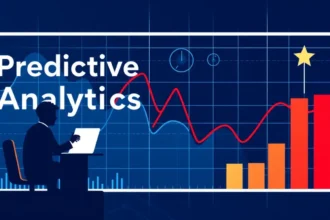It looks like 2010 will be the year of Analytics with advertising from most of the major players and tie-ups between IBM and SPSS as well as Accenture and SAS just to name a couple of high profile examples. Read a little deeper though and the real business activity gets a whole lot more interesting.
It’s true that most of the focus has recently been on analytical techniques, with books such as Competing on Analytics (Davenport and Harris) popularising terms like “Analytics Competitor”. Improvements in computing power have also made complex analytics practical on almost every dataset. However, what is really driving the trend? Davenport and Harris themselves provide some of the evidence in their book when they identify that one of the most important factors in the take-up of analytics is the presence of a leader (typically the CEO) who believes in the power of analytics and data. They use in their book a quote, original from W. Edwards Deming): “In god we trust, all others bring data”.
What does this all mean? Fundamentally the pinnacle of extracting value from data is interpreting it, to do this you need very clever analytics. To do the …
It looks like 2010 will be the year of Analytics with advertising from most of the major players and tie-ups between IBM and SPSS as well as Accenture and SAS just to name a couple of high profile examples. Read a little deeper though and the real business activity gets a whole lot more interesting.
It’s true that most of the focus has recently been on analytical techniques, with books such as Competing on Analytics (Davenport and Harris) popularising terms like “Analytics Competitor”. Improvements in computing power have also made complex analytics practical on almost every dataset. However, what is really driving the trend? Davenport and Harris themselves provide some of the evidence in their book when they identify that one of the most important factors in the take-up of analytics is the presence of a leader (typically the CEO) who believes in the power of analytics and data. They use in their book a quote, original from W. Edwards Deming): “In god we trust, all others bring data”.
What does this all mean? Fundamentally the pinnacle of extracting value from data is interpreting it, to do this you need very clever analytics. To do the analytics, you need great data that is not biased by any management interpretation – that sounds a lot like Enterprise Data Management. To leverage the analytics, you need an organisation that is committed to using information, learning from the past and applying it to the future – that sounds a lot like Information Management.
2010 is going to be very interesting with the hope that we can bring data, information and analytics to the fore of business thinking.








